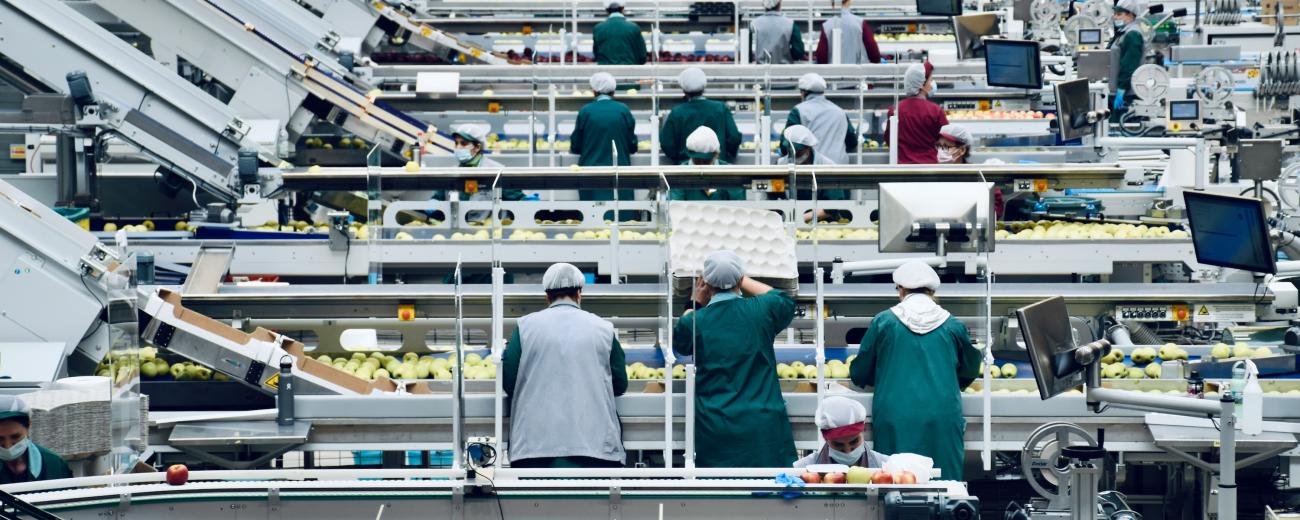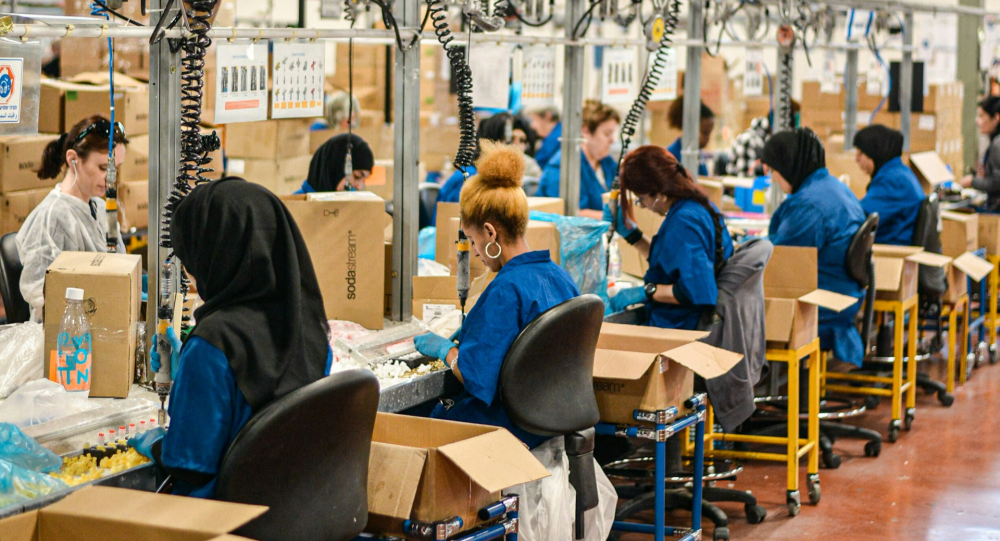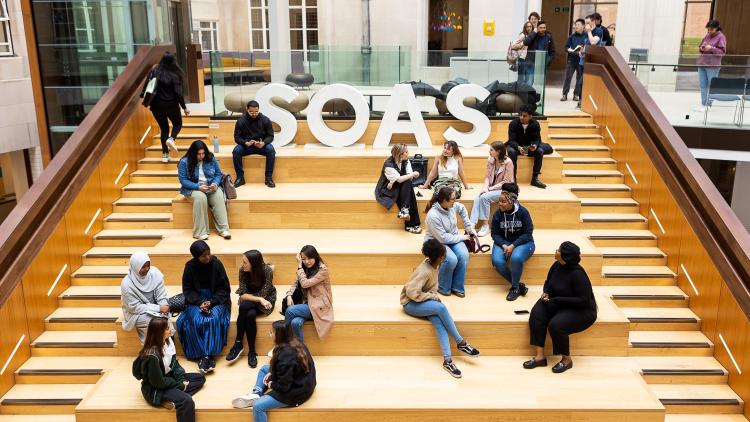Will AI help us out of the productivity slump?


Economics PhD student Thabo Huntgeburth explores how AI may worsen the productivity slump, instead exacerbating wage inequality and economic stagnation.
We are not producing anything anymore! Regrettably, there is an element of truth to this statement, most often attributed to the far-right. To many political analysts, lamenting the industrial demise of the West has been a key driver of the far-right’s political success.
Those analysts should be quite pleased then with the recent advent of AI – a promise for a complete transformation of the economy with staggering increases in productivity. Unfortunately, though, a closer look at the data should make us much more sceptical. It is much more likely that AI is worsening the Western economic chagrin and, with it, increasing the potential for far-right political success.
Why has productivity slumped?
First off, the data for the industrialised countries truly does not look uplifting. Since the Great Financial Crisis, the Global North only experienced an average yearly productivity growth of under 1%. This is less than a fourth of the growth that the emerging markets experienced, where yearly productivity growth has surpassed 4% since 2008. Such a dynamic is historically novel since productivity growth rates in industrialised countries used to be higher than rates in emerging markets throughout the 1980s.
Why is that? The unofficial conundrum is taken up by an author at the World Bank, who proposed a number of explanations for the productivity slump since 2008: slow growth of the workforce, stagnating educational attainment, a stalling in diversification of production, and sluggishness in sorting of workers from low to high productivity growth sectors. The theory here might be that more workers need to be allocated to more productive positions to spur productivity.
Is it because of low-paying jobs?
That this will happen, though, is unlikely. There is an increase in wage inequality within and between firms, regardless of sector or educational attainment. What this means is that no matter how many workers are added or moved around, the wages are polarising: high-wage jobs become fewer and low-paying jobs become the rule. Assuming that low-paying jobs are generally the ones that are low in productivity, then we have an explanation for bad productivity growth: bad jobs. Leading explanations for intra-firm polarisation are retrenchment of workers’ rights and weakened unions, while inter-firm polarisation is caused by the increased dominance of monopolies.
It is much more likely that AI is worsening the Western economic chagrin and, with it, increasing the potential for far-right political success.
But can we be sure that bad jobs are not, in fact, the outcome of lacklustre productivity rather than its cause? A Keynesian take on growth is quite instructive. For this, we need to put ourselves in the shoes of a capitalist. Why would I expand output? The reason is that there is access to capital and technology to actually expand, and – even more importantly – I’d need lively and sustainable consumption: effective demand. If there is no effective demand for my stuff, there’s no need to risk expanding production (instead, I can rely on slashing real wages and making money through stock buy-backs). Thus, the explanation is that 15 years of austerity-cum-monopolisation deprived Western economies of the effective demand to stimulate productive investment – there are not enough workers able to buy stuff.
What’s the matter with AI, then?
The conventional perception is that new AI technology will bring productivity through two channels: the growth of the technology sector that produces AI and efficiency gains through adopting AI in other sectors. These hopes should be more limited in the light of past data for industrialised countries such as Germany, France and the UK. This is so first and foremost, because the total value added of manufacturing in industrialised countries far surpasses that of computer programming – programming is simply not that important for the economy.
In addition to that, since at least the early 2000s, the value added of the programming industry is, in fact, decreasing, meaning that there is less and less growth. Besides, the past returns to investments in information and communication technology (ICT) have been quite moderate. The investment growth in ICT capital consistently far surpassed any other capital investment – the same decades in which we witnessed the productivity slump.
Certainly, one could argue the opposite. There was just not enough investment in ICT! But let’s briefly consider what ICT contributes to production: it boosts the efficiency of processing and transferring information. This relative decrease in costs of information processing was accompanied by a bloating of administrative functions. This elicits the suspicion that efficiency gains in information processing are eaten up by an increase in information, read densifying of work – a rebound effect for data processing efficiency – and that without much productivity gains up until now. For AI, as a data processing revolution, we should thus not hope for a productivity revolution.
Polarised wages and increased inequality
Even if that argument is not convincing, the most damning prospect is that AI most likely further polarises wages: automating non-supervisory tasks creates a skill (and thus wage) spread within firms, and there is even less in the way of further monopolisation (fuel to inter-firm wage inequality). This means that AI optimists, such as at the LSE, are misguided in their hopes – the data processing rebound eats up all efficiency gains, and increased inequality makes us sink deeper into the productivity slump.
In this light, AI is not a saviour for productivity, but rather its headsman: more admin and more inequality.
These false hopes do not come from naivete or ignorance. Rather, analysts tend to consider the wrong scale. The optimism comes from an excessive focus on static individual attributes, such as education or skill, instead of considering macro dynamics, such as the data processing rebound or effective demand. While AI makes individuals more efficient, the economy as a whole is lagging.
In this light, AI is not a saviour for productivity, but rather its headsman: more admin and more inequality. These are quite damning prospects for the political landscapes in the West. The hopeful implication is that fighting the far-right with economic success requires no technological solution. Much rather, we need a political mobilisation against monopolies and inequality.
Header image credit: Arno Senoner via Unsplash.
About the author
Thabo Huntgeburth is a PhD Student in Development Economics at SOAS University of London.




